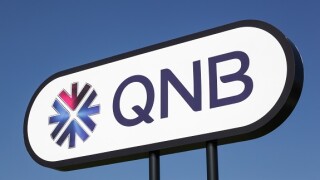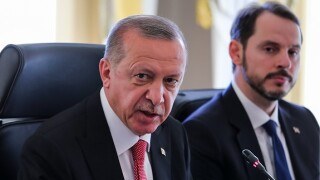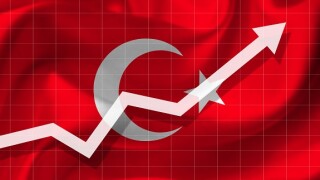Middle East
-
The world's largest oil company, Saudi Aramco, on Tuesday raised an $8bn multi-tranche bond, featuring a rare 50 year piece, in only its second entry into debt capital markets. Proceeds from the deal will help it to generate enough cash to fund a dividend of $75bn as oil prices remain under pressure.
-
Qatar National Bank, by assets the largest bank in the Middle East and North Africa, has raised a dual tranche $3.5bn syndicated loan, one of the largest emerging market loans signed this year.
-
A flurry of Gulf issuers was on track on Tuesday to securing last minute bond funding, as investor appetite appeared insatiable for emerging market debt amid a rally that may well be curtailed by the impending US Thanksgiving holiday.
-
Saudi Aramco, which made its debut in bond markets last year, has mandated banks to arrange a dollar offering, including a 50 year tranche — a maturity only issued once before by a Gulf borrower. According to market players, this is an opportunistic move to grab cash before year-end taking advantage of yield-hungry investors.
-
Turkey could be on track for one of the most remarkable emerging market recoveries of the year, after a shake-up of top officials signalled a return to orthodox monetary policy, inspiring confidence among investors. With the lira starting to recover from record lows, bond market insiders anticipate a new issue before the end of the year. Mariam Meskin reports.
-
French agency Caisse des Dépôts et Consignations finished its 2020 syndicated funding programme with a visit to the Swiss market this week, printing an extremely tight deal through the high quality domestic covered bond curve.
-
İşbank, Turkey's largest private bank by assets, has raised a dual tranche syndicated loan, with margins that were priced "fairly" considering the country's credit risk and general market conditions, according to bankers.
-
Emerging market issuers have crept back into the small issuance window in international markets after a brief pause for the US elections, with Dubai Islamic Bank and Uzbekistan’s Ipoteka Bank issuing dollar-denominated bonds this week.
-
A $204m-equivalent trade in Turkcell, the Turkish mobile telephone operator, reopened Turkish equity capital markets on Monday evening, taking advantage of a boost in the country’s currency following the resignation of its finance minister and dismissal of its central bank governor over the weekiend.
-
The shock departure this weekend of Turkey’s central bank governor and finance minister has sparked hopes among market watchers that a monetary policy overhaul could be on the cards, as the lira made a modest recovery on Monday. The news follows what has been a tumultuous period for the currency, which this month hit record lows.
-
The eventual result of Tuesday's US presidential election could have a monumental impact on the position of key emerging markets states like Russia and Turkey in the international arena.
-
Sovereigns have dominated bond issuance in the CEEMEA region this year. But rating agencies expect sovereign downgrades in 2021.











